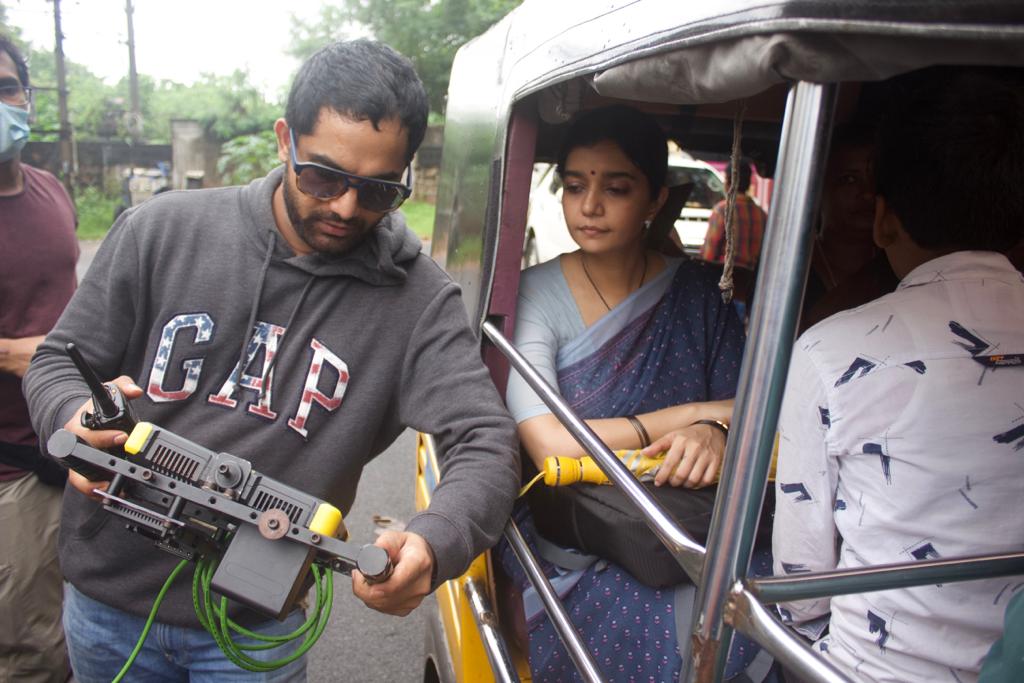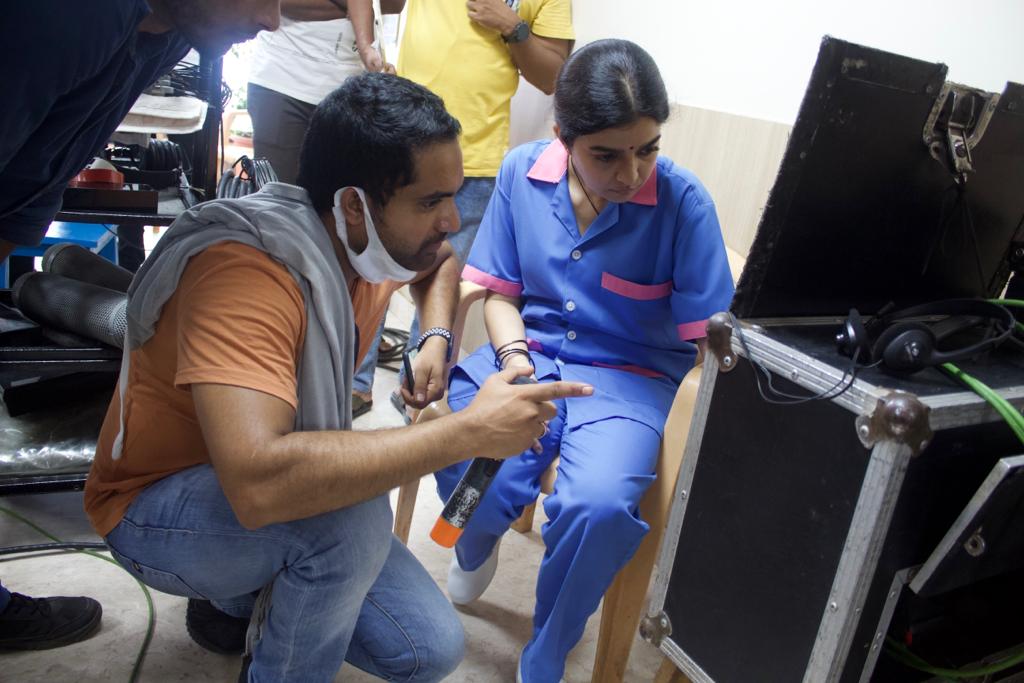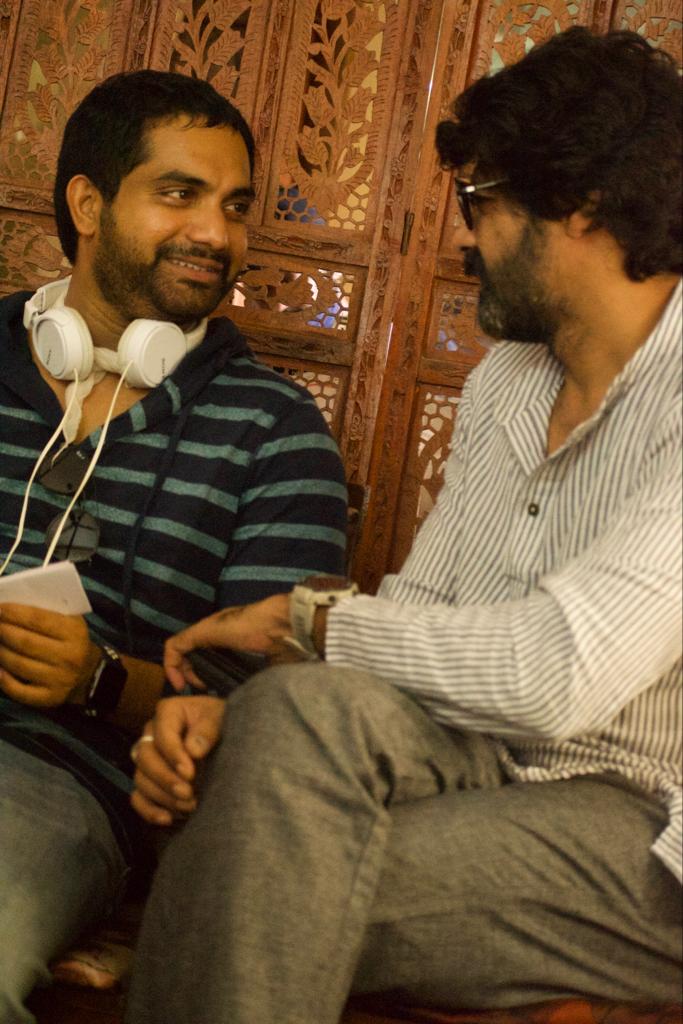Y. Sunita Chowdary
Srikanth Nagoti’s last film (Bhanumathi Ramakrishna) earned encomiums. He had given his all for making the Rom-Com which was mostly made in the perspective of women, the sensitivity which stemmed from his sisters and friend’s wives. Month Of Madhu will be releasing soon, he hadn’t gotten this subject ready much beforehand but began working on it only after the first film released. This is because he didn’t expect such phenomenal success from Bhanumathi Ramakrishna. Once he got the validity and recognition, he was kicked to do a next project. “This industry is tricky and India Today listed it as one of the best South Indian films. With a whole lot of appreciation, I decided to go ahead. I think I am going to surprise the audiences, yes it isn’t female centric though the characterizations are balanced,” says Srikanth in a free wheeling chat.

Title raises curiosity, what is the reason behind naming the film this way? Month Of Madhu literally means Madhu Masam in Telugu but poetically we can infer it is a romance between the lead pair Naveen and Swathi, says Srikanth. He adds, “Every person, man or woman is accountable for the mistakes they do and we learn that Swathi owns up to her mistakes. A girl falls in love with a youth and all well wishers warn her against the relationship. The girl just falls for a guy if he stalks her or goes around her on the bike a few times. The society and family think he is not the right person for her but she goes against the world and marries him but the man defeats her belief. He proves her wrong and the world right. When you are in love you see the world differently and have a strong opinion.”
Srikanth believes that now we are living in times when life is bigger than love and bigger than relationships. He elucidates, “Marriage is a line and both have to stand on it. If man is allowed to cross the line of love and respect, it is not the time when a woman would just stand and stare. It doesn’t work if you say that my grandpa shouted at my grandma and so I’ll do. There are mistakes that are bound to happen in both arranged and love marriages. Naveen is an alcoholic but not exactly a bad guy. Swathi came out of the marriage. I indulge in people and that’s where I find my stories.”
Lekha (Swathi) files a divorce after twenty years. She tried that long. There is no emotional drama, no tears or wallowing in self pity or crying it out to the world. She makes a decision. She reaches a stage where she is just blank and wants to come out of it. At a deeper level she is surely regretting it but doesn’t want to explain why. Naveen is someone who is not happy with himself and not telling anyone. He is holding some bitterness and with this it is difficult to co-exist. Even Swathi isn’t talking about it so she just takes the accountability for the decision. There are two time zones. At 19 it was a conscious decision, and at 39 she again takes a conscious decision and walks out.

The director further says, “Couples from the middle class have fallen in this trap. Society puts us on a guilt trip. Acceptance and toxicity has become a norm. Loving a man is not a one time process and every day the man needs to know he is being loved. This isn’t a dialogue driven film, but a drama based movie. I have written only for the characters, they have more expressions. They speak about what they feel in their life and nothing more.Swathi doesn’t talk much. In her earlier film she was bubbly, this was a challenging project for both of us. The actors did a great job and respected me as a filmmaker. On many occasions I would never tell them the scenes in advance and they would trust me. I didn’t want them to think much. However much I would challenge them, they would challenge me back. I would operate mostly with their interpretation of their character.”
How did Srikanth select his cast? It was apparently an easy process. “Naveen and I wanted to do Month Of Madhu and we discussed a heroine and Naveen suggested Swathi. They are friends. I haven’t thought about anyone else. Swathi liked Bhanumathi And Ramakrishna. It is two hours fifteen minutes long and was shot in sync sound. There is another layer to the film, it has been shot in Vizag.” The director from the beginning has been stressing that this isn’t a woman centric film and throws light on Madhu’s character which is the strongest in the film.
He admits humanizing Madhu’s character, “It was this character that primarily excited me, it is more intriguing and layered than Lekha’s (Swathi). Lekha is a graduate and does blood tests at the hospital. He is alcoholic and since childhood he was soaked in adulation when everyone spoke about his hero-like looks. He got the extra importance and took it seriously and never made an effort to come up in life. That false prestige ruined him. His friends moved ahead in life and he got stuck there and he carries the bitterness throughout.”
Srikanth didn’t like the dubbing in Bhanumathi Ramakrishna so this time opted for sync sound. Human errors reduce here and he feels that whenever there is an option for corrections, opportunity to fix it in post production…there is extra work. Sync was challenging and on the filmmaking front he needed the upgrade.“The lead pair physically put in a long time, and had to make sure their voice was good that day. There were certain breaks which prolonged the film shoot. There is another NRI character called Madhu in the film and her mother’s part is played by Manjula Ghattamaneni. She was a professional and an absolute sweetheart to work with. She made a couple of videos on our sets and enjoyed her work.”
The director who was working with Naveen again states that the latter came back to him with ten times more energy than he had in Bhanumathi Ramakrishna and Swathi had many questions to ask. “I did answer and I said, some, she will find it on the sets as the film progresses and she respected that. They both had their individual approach to acting and we motivated each other. Acchu Rajamani composed the music and there are four songs in the film and DoP is Rajeev Dharavath, an alumni of FTII Pune. I want people to see the film not as a regional story. I have an interesting technical team who don’t know much about Telugu cinema,” signs off the talented director.














